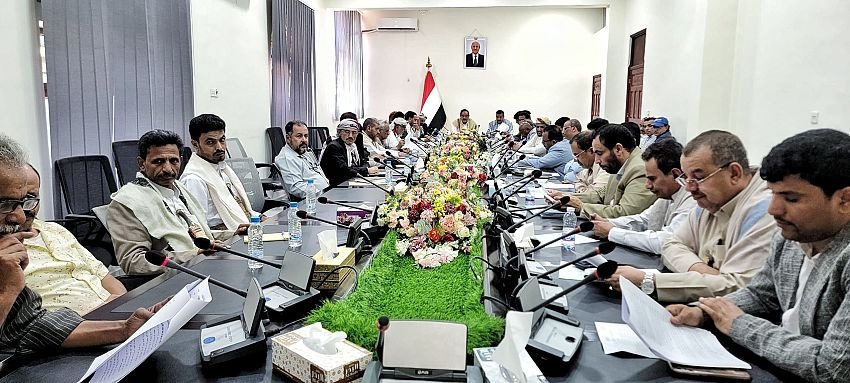


Barran Press
The Executive Office of Marib Governorate (northeastern Yemen) convened a meeting on Monday, August 5, 2024, to discuss preparations for the upcoming academic year and the urgent needs for creating an "attractive" learning environment and improving the quality of education.
The meeting, chaired by Deputy Governor Ali Al-Fatimi and attended by Deputy Governors Dr. Abdulrabah Muftah and Abdullah Al-Bakri, was reported by the official Yemeni news agency Saba.
The meeting recommended a comprehensive gathering involving local authorities, the commercial and financial sectors of the governorate, and the education cluster, encompassing international, regional, and local organizations and education partners. The aim is to mobilize support and funding to address the needs of the education sector in Marib before the start of the new academic year.
The meeting also discussed the state of education in both public and private schools, its quality, and the shortcomings that have plagued the educational process in recent years, including how to overcome them. It highlighted the urgent needs of the educational process, such as preventing teacher and student dropout rates.
Other key discussion points included:
On Wednesday, July 31, 2024, Deputy Minister of Education Dr. Ali Al-Abab discussed the implementation plan for the "Back to School" campaign with the Marib education sub-cluster, focusing on the start of the 2024-2025 academic year.
The discussions also addressed the significant need for creating a conducive learning environment, enhancing the capacity of educational institutions in terms of student capacity, educational materials, curricula, teaching aids, teacher incentives, and student learning kits.
Al-Abab provided an explanation of the challenges facing the education sector, particularly in Marib, which he highlighted as hosting over 62% of internally displaced persons, exceeding the capacity of the education sector to accommodate the large number of students. This has resulted in many students being excluded from education.
The Deputy Minister of Education emphasized that the responsibility for educating generations, preparing them, and equipping them to shape their future and build their nation rests on everyone, including government agencies, community leaders, parents, and organizations involved in humanitarian and development work. It is not the responsibility of any single entity.